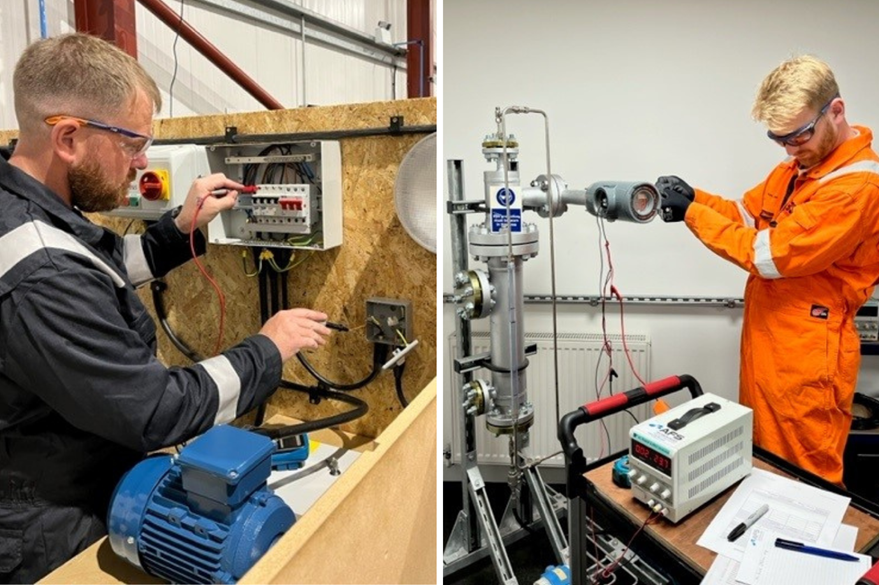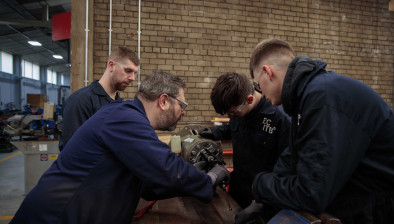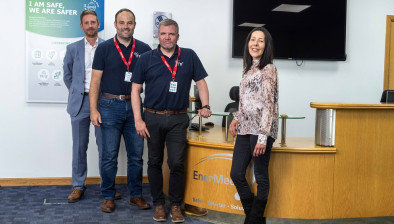Funding boost for Connected Competence temporary worker tests

The ECITB is increasing the funding available to enable temporary workers within the engineering construction industry (ECI) to verify their base level of technical competence as part of the Connected Competence scheme.
Industry-led, Connected Competence was introduced to ensure an ongoing base level of technical competence for workers across the ECI to create a safer, more competent and transferable workforce. Competence is verified through industry-recognised, standardised testing.
This year the Engineering Construction Industry Training Board (ECITB) allocated £130,000 to support temporary workers to complete the technical tests required. A further £120,000 has just been committed to testing vouchers in the drive to forge a safe, skilled and agile workforce.
Andy Brown, chief operating officer at the ECITB, said: “The additional funding will support the programme to achieve critical mass. This is important to ensure we have the competent, safe and transferable workforce industry needs, particularly with emerging net zero projects and the skills shortages we face.
“This is applicable to common trades within the ECI and, as the Connected Competence programme expands and is recognised across more sectors, it will ensure the workers are agile and their technical competencies are accepted.
“It ultimately means workers deployed on sites managed by employers who recognise Connected Competence will not have to undergo further site or company specific competency testing. This will prevent unnecessary duplication of training and assessment, and the time and costs associated with this.”
John Boland, regional officer at Unite the Union, said: “Unite the Union supports this initiative for the temporary (ad hoc) offshore workforce. It will ensure these workers are able to demonstrate their ongoing competence to work safely offshore, through Connected Competence, at no cost to themselves.
“It should make it easier for the workforce to move between connected competency employers, without the need to repeat this competence verification every time.”
The scheme has grown significantly in the last 12 months with 20 clients and ten major contractors signing up to the programme. Ten training organisations across the country now provide the technical tests with seven participating in the voucher scheme for temporary workers.
It also has the backing of Unite the Union, GMB Union and the RMT as well as industry stakeholders including HSE, the Scottish Government, Step Change in Safety, OEUK and NSTA.
Employers signed up to Connected Competence who require workers to verify their competence through the technical tests include Aker Solutions, Bilfinger UK, Boskalis, Global E&C, Petrofac, Ponticelli, Semco, Stork, Wood and Worley.
Temporary workers who are working (or seeking work) with these Connected Competence employers can access technical test vouchers. The trade disciplines required to verify competence through technical tests before mobilisation include pipefitters, platers, electrical maintenance technicians, electrical installation technicians, mechanical maintenance technicians, instrument & control technicians, industrial coatings technicians, riggers, appointed persons for rigging and thermal insulators.
The technical tests needed are outlined within the role profile for each discipline on the Connected Competence website at connectedcompetence.co.uk/disciplines. Recruitment teams from Connected Competence employers also outline these to workers as a pre-requisite before being deployed.
Workers then just need to identify the most convenient approved training provider who is part of the transient worker scheme to book their test.
Participating training centres include:
- Aberdeen: 3t, AFST, Enermech, GCSG Training and Tullos Training
- Newcastle: 3t
- Exeter: The Focus Training Group
- Merseyside: Engineering College
On successful completion of the technical tests, workers are awarded a test certificate and a digital badge. The digital badge is owned by the worker and moves with them ensuring their technical competence is recognised by other employers as they move across sites.





















